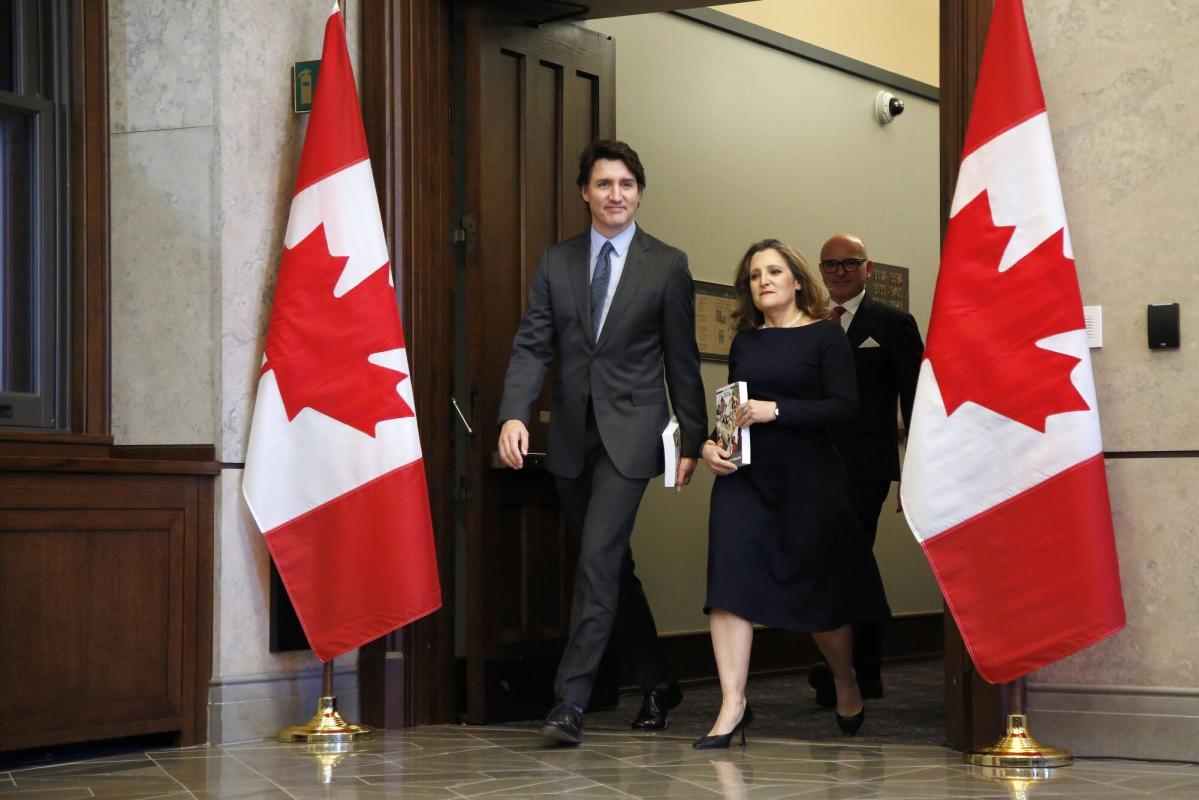(Bloomberg) — Some of Canada’s biggest business groups are urging Prime Minister Justin Trudeau to reverse his government’s plan to raise the tax inclusion rate on capital gains.
Most Read from Bloomberg
The government should cancel the proposed tax hike, six major industry associations, including the Canadian Chamber of Commerce and the Canadian Venture Capital and Private Equity Association, wrote in a letter Thursday to Finance Minister Chrystia Freeland.
“We are calling on the government to heed the advice of many of Canada’s most respected leaders and commit to scrapping the ill-advised inclusion rate increase,” the groups wrote.
In last month’s budget, Freeland unveiled plans to tax Canadian companies and individuals on two-thirds of their realized capital gains, up from half currently. The government said the changes, which are scheduled to come into effect June 25, would impact just 0.13% of Canadians and 12.6% of businesses. For individuals, only gains over C$250,000 (about $182,000) are taxed at the new, higher rate.
The industry groups dispute the government’s estimates, arguing that one in five Canadians will be “directly impacted over the next 10 years and the effects of this tax hike will be borne by all Canadians, directly or indirectly.”
The letter adds to a chorus of groups criticizing the planned tax increase. The Canadian Medical Association also opposes the changes, saying the many doctors that incorporate their practices will face a higher tax burden. More than one in 10 Canadians owns an investment property, according to a report by Royal Lepage, and they’ll pay more if they sell for a large gain. Primary residences are exempt from capital gains taxes in Canada.
“If enacted, this change will have significant knock-on impacts, including making it harder for Canadians to access medical practitioners, limiting employment opportunities and making the prospect of starting, growing or succession planning a business more difficult, especially for multigenerational businesses such as farms, fisheries and small businesses,” the groups said.
Read More: Firms Say Canada Tax Move Risks Deeper Productivity Slump
The four other industry associations that signed the letter are Canadian Manufacturers and Exporters, the Canadian Federation of Independent Business, the Canadian Franchise Association and the Canadian Canola Growers Association.
“Our country must end its reliance on tax-and-spend politics, which is undermining innovation and growth to the detriment of both today’s Canadians and future generations,” the groups wrote.
The tax change is expected to generate C$19.4 billion in revenue over a five-year period, the government estimates. That money may help contain deficits, even as the government ramps up new spending, including measures intended to help with housing affordability and improve the prospects of young people.
Freeland did not include the tax change in her main budget bill on April 30, saying she plans to bring in standalone legislation for it.
In a separate letter to Freeland on Thursday, the Business Council of Canada said it’s concerned the proposed changes will further undermine Canada’s ability to attract investment and talent and inhibit economic growth.
“More importantly, we believe the debate over capital gains taxes overshadows an even greater issue of concern – that the government’s fiscal framework is unsustainable,” it said.
“No tax increases would be required if the government reduced its planned spending and took proactive measures to stimulate growth, such as removing regulatory barriers.”
–With assistance from Jay Zhao-Murray.
(Adds letter from Business Council of Canada.)
Most Read from Bloomberg Businessweek
©2024 Bloomberg L.P.
